I recently wrote a little class that uses the Bose-Nelson algorithm to generate a sorting network on compile time.
It can be used to create a very fast sort for 10 numbers.
/**
* A Functor class to create a sort for fixed sized arrays/containers with a
* compile time generated Bose-Nelson sorting network.
* \tparam NumElements The number of elements in the array or container to sort.
* \tparam T The element type.
* \tparam Compare A comparator functor class that returns true if lhs < rhs.
*/
template <unsigned NumElements, class Compare = void> class StaticSort
{
template <class A, class C> struct Swap
{
template <class T> inline void s(T &v0, T &v1)
{
T t = Compare()(v0, v1) ? v0 : v1; // Min
v1 = Compare()(v0, v1) ? v1 : v0; // Max
v0 = t;
}
inline Swap(A &a, const int &i0, const int &i1) { s(a[i0], a[i1]); }
};
template <class A> struct Swap <A, void>
{
template <class T> inline void s(T &v0, T &v1)
{
// Explicitly code out the Min and Max to nudge the compiler
// to generate branchless code.
T t = v0 < v1 ? v0 : v1; // Min
v1 = v0 < v1 ? v1 : v0; // Max
v0 = t;
}
inline Swap(A &a, const int &i0, const int &i1) { s(a[i0], a[i1]); }
};
template <class A, class C, int I, int J, int X, int Y> struct PB
{
inline PB(A &a)
{
enum { L = X >> 1, M = (X & 1 ? Y : Y + 1) >> 1, IAddL = I + L, XSubL = X - L };
PB<A, C, I, J, L, M> p0(a);
PB<A, C, IAddL, J + M, XSubL, Y - M> p1(a);
PB<A, C, IAddL, J, XSubL, M> p2(a);
}
};
template <class A, class C, int I, int J> struct PB <A, C, I, J, 1, 1>
{
inline PB(A &a) { Swap<A, C> s(a, I - 1, J - 1); }
};
template <class A, class C, int I, int J> struct PB <A, C, I, J, 1, 2>
{
inline PB(A &a) { Swap<A, C> s0(a, I - 1, J); Swap<A, C> s1(a, I - 1, J - 1); }
};
template <class A, class C, int I, int J> struct PB <A, C, I, J, 2, 1>
{
inline PB(A &a) { Swap<A, C> s0(a, I - 1, J - 1); Swap<A, C> s1(a, I, J - 1); }
};
template <class A, class C, int I, int M, bool Stop = false> struct PS
{
inline PS(A &a)
{
enum { L = M >> 1, IAddL = I + L, MSubL = M - L};
PS<A, C, I, L, (L <= 1)> ps0(a);
PS<A, C, IAddL, MSubL, (MSubL <= 1)> ps1(a);
PB<A, C, I, IAddL, L, MSubL> pb(a);
}
};
template <class A, class C, int I, int M> struct PS <A, C, I, M, true>
{
inline PS(A &a) {}
};
public:
/**
* Sorts the array/container arr.
* \param arr The array/container to be sorted.
*/
template <class Container> inline void operator() (Container &arr) const
{
PS<Container, Compare, 1, NumElements, (NumElements <= 1)> ps(arr);
};
/**
* Sorts the array arr.
* \param arr The array to be sorted.
*/
template <class T> inline void operator() (T *arr) const
{
PS<T*, Compare, 1, NumElements, (NumElements <= 1)> ps(arr);
};
};
#include <iostream>
#include <vector>
int main(int argc, const char * argv[])
{
enum { NumValues = 10 };
// Arrays
{
int rands[NumValues];
for (int i = 0; i < NumValues; ++i) rands[i] = rand() % 100;
std::cout << "Before Sort: \t";
for (int i = 0; i < NumValues; ++i) std::cout << rands[i] << " ";
std::cout << "\n";
StaticSort<NumValues> staticSort;
staticSort(rands);
std::cout << "After Sort: \t";
for (int i = 0; i < NumValues; ++i) std::cout << rands[i] << " ";
std::cout << "\n";
}
std::cout << "\n";
// STL Vector
{
std::vector<int> rands(NumValues);
for (int i = 0; i < NumValues; ++i) rands[i] = rand() % 100;
std::cout << "Before Sort: \t";
for (int i = 0; i < NumValues; ++i) std::cout << rands[i] << " ";
std::cout << "\n";
StaticSort<NumValues> staticSort;
staticSort(rands);
std::cout << "After Sort: \t";
for (int i = 0; i < NumValues; ++i) std::cout << rands[i] << " ";
std::cout << "\n";
}
return 0;
}
Note that instead of an if (compare) swap statement, we explicitly code out ternary operators for min and max. This is to help nudge the compiler into using branchless code.
##Benchmarks
The following benchmarks are compiled with clang -O3 and ran on my mid-2012 MacBook Air.
###Sorting random data
Comparing it with DarioP's code, here are the number of milliseconds taken to sort 1 million 32-bit int arrays of size 10:
Hardcoded Sort Net 10 : 88.774 ms
Templated Bose-Nelson sort 10 : 27.815 ms
Using this templated approach, we can also generate sorting networks upon compile time for other number of elements.
Time (in milliseconds) to sort 1 million arrays of various sizes.
The number of milliseconds for arrays of size 2, 4, 8 are 1.943, 8.655, 20.246 respectively.

Credits to Glenn Teitelbaum for the unrolled insertion sort.
Here are the average clocks per sort for small arrays of 6 elements. The benchmark code and examples can be found at this question:
Fastest sort of fixed length 6 int array
Direct call to qsort library function : 326.81
Naive implementation (insertion sort) : 132.98
Insertion Sort (Daniel Stutzbach) : 104.04
Insertion Sort Unrolled : 99.64
Insertion Sort Unrolled (Glenn Teitelbaum) : 81.55
Rank Order : 44.01
Rank Order with registers : 42.40
Sorting Networks (Daniel Stutzbach) : 88.06
Sorting Networks (Paul R) : 31.64
Sorting Networks 12 with Fast Swap : 29.68
Sorting Networks 12 reordered Swap : 28.61
Reordered Sorting Network w/ fast swap : 24.63
Templated Sorting Network (this class) : 25.37
It performs as fast as the fastest example in the question for 6 elements.
###Performance for sorting sorted data
Often, the input arrays may be already sorted or mostly sorted.
In such cases, insertion sort can be better choice.

You may want to choose an appropriate sorting algorithm depending on the data.
The code used for the benchmarks can be found here.



